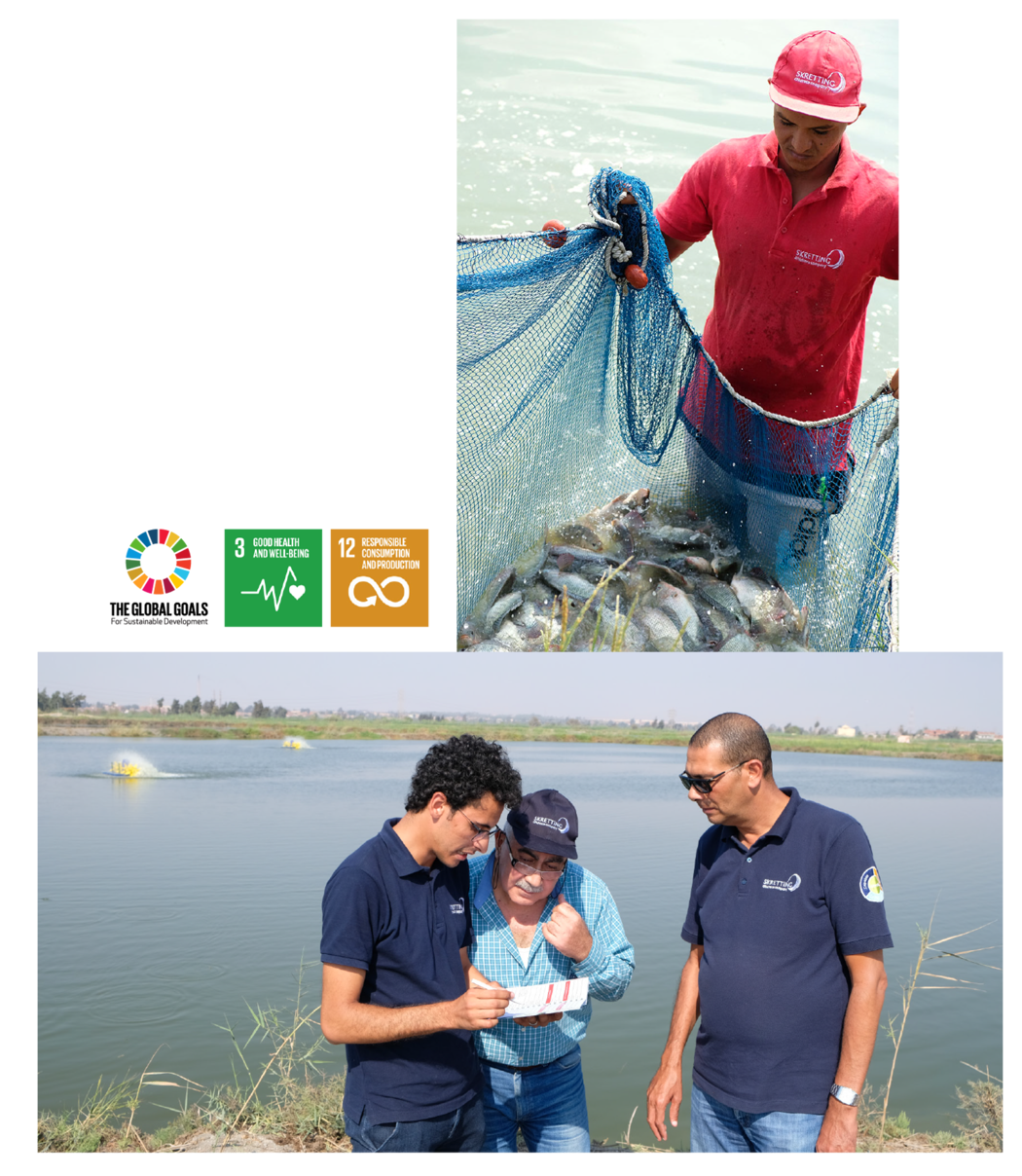Taking its name from ancient Egypt and the first (stepped) pyramids, Sakkara is our most recent project aimed at helping local farmers grow their production step-by-step.

Egypt’s tilapia sector has become increasingly competitive over the past decade – in line with the market’s rising demand. This growth has come despite a strict regulatory framework that insists that the farming of fish cannot occur in locations where the land could instead be used for agriculture. Essentially, this means that fish producers are only permitted to use brackish and marine water and infertile land. Additionally, the use of fresh water is prohibited. Instead, they must use water from lakes and drains.
Having water from the Nile first going to agriculture sectors before it can be used for aquaculture creates a number of challenges for tilapia farmers, including suboptimal water parameters. The sector also suffers from disease-related threats such as summer mortality syndrome which came to the fore in 2013. Against such a backdrop, we believe in supporting farmers to incorporate best-practice into their farming systems, particularly with regards to optimising fish health and farm efficiency.
To support these endeavours, through our local company Skretting Egypt (established in 2008), we have been applying our world-class expertise to the market for more than a decade. 2019 was an important year in this regard. First, Skretting Egypt launched Nutra into the local market. These high-performance starter diets support first-feeding fry by providing the specific nutrients and right particle size for each life stage – from egg to fingerling. Also new to the market was Protec, a diet especially designed to help support tilapia and enhance their ability to cope with during challenging situations, including the hot summer seasons. Both solutions have been warmly welcomed by Skretting Egypt’s customers.
Built on the three pillars of farm management, water management and feed management, Sakkara’s main objective is to improve the productivity and profitability of tilapia farms.

Next
17. About Skretting
Skretting is the global leader in providing innovative and sustainable nutritional solutions for the aquaculture industry. Skretting has production facilities in 18 countries, and its 3,501 employees manufactures and delivers high quality feeds from hatching to harvest for more than 60 species.
